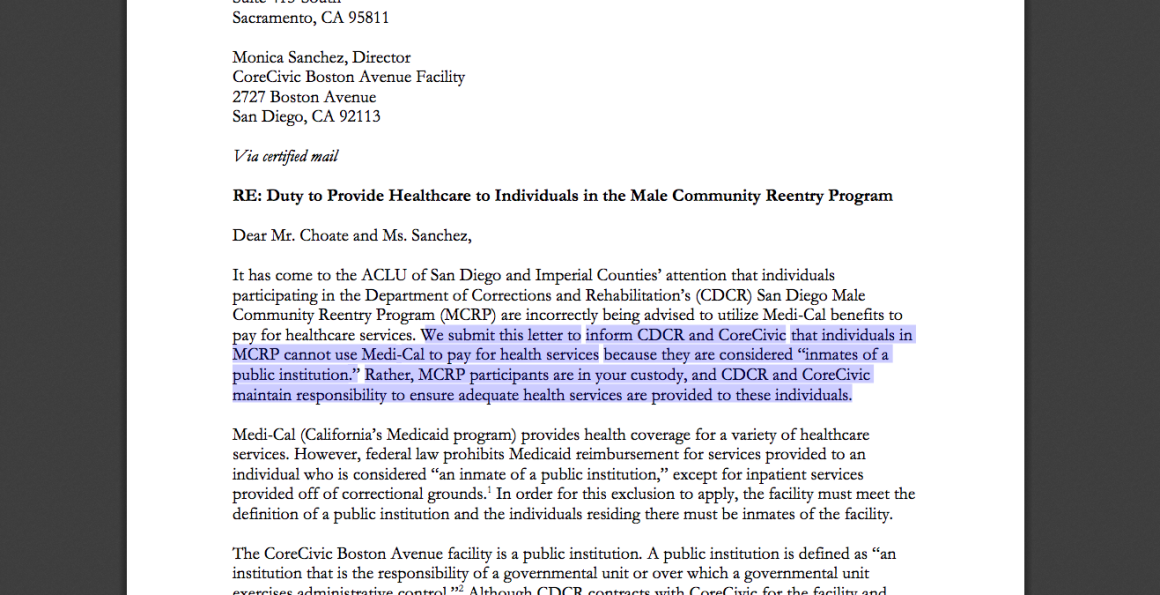State cannot forfeit its responsibility to pay for incarcerated people’s health care by using for-profit contractors to run correctional facilities
By Kellen Russoniello
One of the most critical needs for people reintegrating into the community after incarceration is access to health care, but a systemic failure to provide it has left some in San Diego without means to afford the services they need.
The Male Community Reentry Program is supposed to promote reentry by transferring individuals serving their last year of a prison sentence to facilities located in the communities to which they will return. The program is administered by the California Department of Corrections and Rehabilitation and operated locally by CoreCivic (a for-profit prison company).
While in the program, these men are out of state prison, but they are still technically considered “inmates.” That means the state and the contractors that run these facilities, such as CoreCivic, are responsible for ensuring adequate health care for these men.
The ACLU of San Diego and Imperial Counties recently learned that officials with the San Diego Male Community Reentry Program are falsely telling inmates to use Medi-Cal to pay for health services.
Because of these practices, some program participants are getting stuck with expensive health care bills and no financial support. That’s wrong, and it needs to stop.
The ACLU of San Diego recently wrote a letter to the California Department of Corrections and Rehabilitation and CoreCivic, reminding them of their responsibilities to pay for the health care of the people in the Male Community Reentry Program.

Medi-Cal — California’s Medicaid program — provides health coverage for a variety of services and individuals living in California. But federal law prohibits Medicaid reimbursements for services provided to individuals who are “inmates of a public institution.”
In San Diego, people in the CoreCivic facility meet the definition of “inmates of a public institution.” Although they are no longer in a state-operated prison, they are required to reside in the CoreCivic facility and abide by all its rules or risk returning to prison. The fact that the state contracts with CoreCivic for the facility and services makes no difference, as the Department of Corrections and Rehabilitation maintains responsibility for the community reentry program.
The state has a constitutional duty to ensure adequate health care for the people it incarcerates, and it cannot shirk that responsibility through contracts with for-profit companies.
Our letter asks the Department of Corrections and Rehabilitation and CoreCivic for a plan to finance participants’ health care costs moving forward and pay for costs already incurred. This is not only important to prevent people being stuck with expensive health care bills, but also because refusing to pay for these people’s care could harm their health.
People with complex health conditions may be denied access to health care specialists because they don’t have the means to pay for services. Some may choose not to access services at all if they know they will get the full bill.
Incarcerated people do not lose their rights because they are put in a for-profit-operated corrections facility. The state and CoreCivic must fulfill their constitutional duty and pay for the health care costs of people they incarcerate.